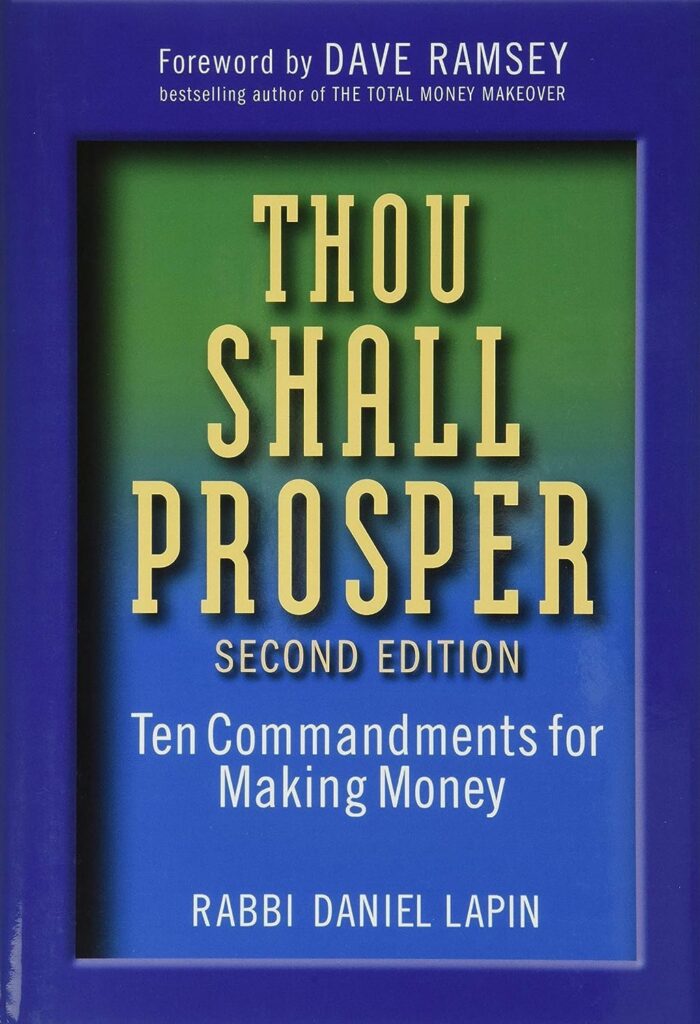SPECIAL REPORT SACRED WEALTH
Top 10 Money Insights from 7 World Religions You Can’t Afford to Ignore
Intro | Christianity | Islam | Hinduism | Buddha | Shinto | Sikhism | Judaism | Conclusion
 Judaism (Hebrew: יַהֲדוּת, romanized: Yahăḏūṯ) is an Abrahamic monotheistic ethnic religion that comprises the collective spiritual, cultural, and legal traditions of the Jewish people. Religious Jews regard Judaism as their means of observing the Mosaic covenant, which was established between God and the Israelites, their ancestors. The religion is considered one of the earliest monotheistic religions in the world.
Judaism (Hebrew: יַהֲדוּת, romanized: Yahăḏūṯ) is an Abrahamic monotheistic ethnic religion that comprises the collective spiritual, cultural, and legal traditions of the Jewish people. Religious Jews regard Judaism as their means of observing the Mosaic covenant, which was established between God and the Israelites, their ancestors. The religion is considered one of the earliest monotheistic religions in the world.
PART 8: Here are the TOP 10 Practical insights from the Hebrew Bible (Mikra) that will transform your relationship with money
Judaism, a monotheistic religion developed among the ancient Hebrews. Judaism is characterized by a belief in one transcendent God who revealed himself to Abraham, Moses, and the Hebrew prophets and by a religious life in accordance with Scriptures and rabbinic traditions.
The Hebrew Bible, or Tanakh, is filled with wisdom not only about spirituality and ethics but also about how we manage our resources.
Many of its teachings offer powerful, practical insights that can reshape our approach to money, wealth, and personal finance. Whether you’re Jewish or simply seeking to understand timeless financial principles, the Tanakh provides a roadmap for financial freedom that transcends generations. Here are ten key lessons from the Hebrew Bible that can help transform your relationship with money.
1. Honesty in Business – Leviticus 19:35-36
“Do not use dishonest standards when measuring length, weight, or quantity. Use honest scales and honest weights.”
One of the most fundamental lessons in managing wealth is maintaining integrity in business. The Tanakh emphasizes fair dealings and honesty in all transactions. When you conduct business with truthfulness, you build a reputation that attracts loyal customers, investors, and opportunities. Over time, this integrity becomes an invaluable asset that ensures lasting prosperity.
2. The Value of Hard Work – Proverbs 12:11
“Those who work their land will have abundant food, but those who chase fantasies have no sense.”
The Tanakh strongly encourages diligence and discipline in work. Success doesn’t come from idle pursuits or shortcuts, but from dedicated effort and a commitment to one’s craft. By embracing hard work, we are more likely to reap long-term rewards and build sustainable wealth.
3. Avoiding Debt – Proverbs 22:7
“The rich rule over the poor, and the borrower is servant to the lender.”
While modern financial systems may make borrowing easy, the Tanakh warns about the dangers of debt. Borrowers are beholden to their lenders, often losing financial freedom in the process. Judaism advocates for living within one’s means and avoiding the financial shackles that come with excessive borrowing.
4. Generosity and Charity – Deuteronomy 15:10
“Give generously to them and do so without a grudging heart; then because of this the Lord your God will bless you in all your work and in everything you put your hand to.”
Financial freedom is not just about accumulating wealth but also about sharing it with those in need. The practice of tzedakah (charity) is central to Jewish life and encourages a mindset of abundance. When you give generously, it not only benefits others but opens the doors for more blessings and opportunities to flow into your own life.
5. Wealth is a Blessing, Not an Idol – Deuteronomy 8:18
“But remember the Lord your God, for it is he who gives you the ability to produce wealth.”
The Tanakh teaches that wealth should be viewed as a tool for good, not an end in itself. The ability to create wealth is a divine blessing, and we should use it to fulfill our responsibilities to family, community, and God. This understanding prevents greed from taking root and helps keep financial pursuits in their proper perspective.
6. The Importance of Saving – Proverbs 21:20
“The wise store up choice food and olive oil, but fools gulp theirs down.”
Saving is a principle of wisdom that the Tanakh highlights repeatedly. By setting aside resources for future needs, you prepare yourself for times of uncertainty, whether due to illness, job loss, or other challenges. The practice of saving ensures that you have a safety net, allowing you to weather financial storms and achieve long-term goals.
7. Investing Wisely – Ecclesiastes 11:2
“Invest in seven ventures, yes, in eight; you do not know what disaster may come upon the land.”
The Tanakh encourages diversification, recognizing the unpredictability of life. In an era of economic uncertainty, investing in a range of opportunities—whether in real estate, stocks, or even skills—can protect your wealth from unforeseen circumstances. The idea is to spread risk and ensure that some portion of your efforts will continue to grow, regardless of external challenges.
8. Plan and Prepare – Proverbs 21:5
“The plans of the diligent lead to profit as surely as haste leads to poverty.”
Financial success is not achieved by chance, but through careful planning and strategy. The Tanakh underscores the importance of foresight and careful thought in all matters, including finance. Whether you’re managing personal wealth or building a business, taking the time to plan will increase your chances of success while reducing costly mistakes.
9. Live Simply and Avoid Excess – Ecclesiastes 4:6
“Better one handful with tranquility than two handfuls with toil and chasing after the wind.”
The Tanakh reminds us that true wealth is not found in material excess, but in balance and peace of mind. It’s easy to get caught up in the pursuit of more, but the Bible teaches that simplicity, contentment, and peace bring true satisfaction. Avoiding the trap of consumerism allows you to keep money in its rightful place as a tool for living, not a source of stress.
10. Trust in God’s Provision – Matthew 6:25-34 (New Testament, but rooted in Jewish tradition)
“Do not worry about your life, what you will eat or drink; or about your body, what you will wear… But seek first his kingdom and his righteousness, and all these things will be given to you as well.”
While this teaching comes from the New Testament, it is deeply rooted in the Jewish tradition of trusting God to provide. The Tanakh teaches that while we are responsible for our actions, we must also trust in God’s guidance and provision. Financial security isn’t solely dependent on our efforts but also on faith that our needs will be met in due time.
 Purchase “Thou Shall Prosper: Ten Commandments for Making Money” on Amazon.com
Purchase “Thou Shall Prosper: Ten Commandments for Making Money” on Amazon.com
Conclusion
The teachings of the Tanakh offer a profound guide for anyone seeking financial freedom, regardless of their religious background. From ethical business practices to wise investment, generosity, and maintaining a healthy relationship with money, these ancient principles are just as relevant today as they were thousands of years ago. By integrating these lessons into our daily lives, we can build not just wealth, but a life of balance, purpose, and lasting prosperity.
 Read The Complete Special Report Here
Read The Complete Special Report Here
 The Punk Rock Prophet Joe Strummer from THE CLASH once said, “Without people, you’re nothing.” This profound insight could just as easily reflect the true value of money when considered in the context of humanity.
The Punk Rock Prophet Joe Strummer from THE CLASH once said, “Without people, you’re nothing.” This profound insight could just as easily reflect the true value of money when considered in the context of humanity.
Charles Bivona Jr., aka Coach JP Money, is a business strategist, financial coach, and founder of CoachJPmoney.com. A lifelong entrepreneur, he launched his first real estate deal at 17 and went debt-free by 1998. Since then, he has built national media brands, advised small businesses, and helped clients grow online using smart strategy, digital tools, and creative grit.
An expat living in Baja, Mexico, Charles also writes and produces music as Johnny Punish and lives off-grid at Hacienda Eco-Domes, a sustainable retreat he built with his wife. Through providing small business services, coaching, writing, and podcasting, he’s on a mission to help others win their future—on their terms.
Read his full bio at PunishStudios.com >>>
Post Views: 154